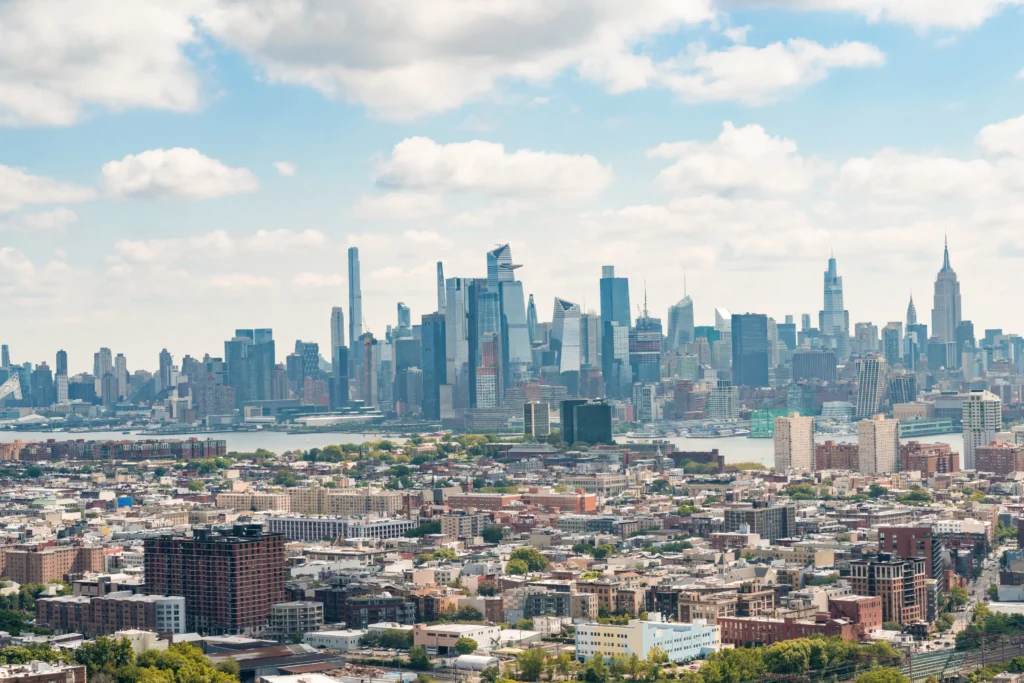New Jersey, previously synonymous with industrial prowess, is currently experiencing a transformational transition in its commercial development market.
As we traverse the intricacies of 2024 and beyond, the Garden State is dealing with several issues that are transforming the future of its office buildings, retail corridors, and industrial areas.
From the long-term repercussions of the pandemic to the rise of remote work and a renewed emphasis on sustainability, New Jersey’s commercial real estate sector is facing unprecedented change.
This article looks into the major issues driving this change and considers the ramifications for investors, developers, and enterprises.
Economic Factors
Like many other markets, the commercial real estate market in New Jersey is closely related to the overall status of the economy.

Commercial Development Trends 2024
Important factors influencing its course are interest rates, inflation, and the state of the economy as a whole. An increase in interest rates can raise the cost of financing commercial real estate developments, which could reduce investment and demand. Lower interest rates, on the other hand, can increase activity since borrowing becomes more feasible. Inflationary pressures may also affect the market since growing prices for labor, building supplies, and operational costs can have an impact on property values and rental rates.
Strong job growth and consumer confidence indicate a healthy economic future, which can raise demand for commercial space. A downturn, on the other hand, can result in more vacancies and lower property values. The characteristics of the New Jersey real estate market will continue to be influenced by these elements in 2024 and beyond, necessitating investors and developers to carefully navigate the changing economic landscape.
Market Trends
A number of significant market changes are changing the real estate scene in New Jersey as we navigate the challenges of 2024 and beyond. Significant changes are occurring in the office space, retail, industrial, and multifamily sectors, which will shape the direction of commercial real estate investment in the future. An increasing preference for flexible, collaborative workspaces has resulted in a reevaluation of traditional office space, as remote work has become more prevalent. Due to the e-commerce boom, retail venues are changing to accommodate experiential retail and mixed-use projects. There is a strong need for industrial space, especially for logistics and warehousing facilities, because of the rise in e-commerce and supply chain disruptions.
Furthermore, the need for multifamily housing is being driven by the growing urban population and shifting demographics, which is opening up prospects for both new construction and renovation projects. The commercial real estate market in New Jersey is changing due to these interrelated factors, which offer possibilities and difficulties to businesses, developers, and investors alike.
Technological Developments
The use of technology to the real estate industry aims to improve customer happiness, streamline processes, and increase efficiency. Thanks to innovations like virtual property tours and AI-powered property management, the leasing, management, and optimization of commercial buildings are being completely transformed. Another major trend is sustainability, as seen by the rising demand for ecologically and energy-friendly buildings. Climate change concerns are pushing developers and investors in real estate to think about sustainable projects including employing renewable energy sources and lowering carbon footprints. The surge in remote work has resulted in a major increase in the requirement for commercial office space. A trend exists toward flexible, collaborative workspaces that meet the demands of remote workers as more businesses adopt hybrid work arrangements. New Jersey’s real estate market in the commercial sector is changing because of these technology developments, opening up new possibilities for expansion and creativity.
Urban Development
Urban renewal projects, such as restoration of abandoned properties or rejuvenating historic districts, can provide thriving, walkable neighborhoods that draw in locals and businesses. The suburbanization of society, fueled by economic and lifestyle considerations, is creating a greater need for real estate growth in suburban locations, especially for retail and office applications. Robust infrastructure investments, such as those in utilities and transportation networks, are also necessary to promote economic growth and draw firms to particular areas. Together, these tactics affect the demand for commercial real estate, influencing the kinds of properties that are in great demand, where they are located, and the general dynamics of the Garden State market.
As the real estate market evolves, New Jersey is well positioned to shape the industry’s future. The trends discussed in this article, from the emergence of hybrid workspaces to the rising need for sustainable structures, illustrate both the potential and problems that lie ahead. Understanding these trends enables investors, developers, and companies to position themselves for success in New Jersey’s dynamic and ever-changing market for commercial real estate.




